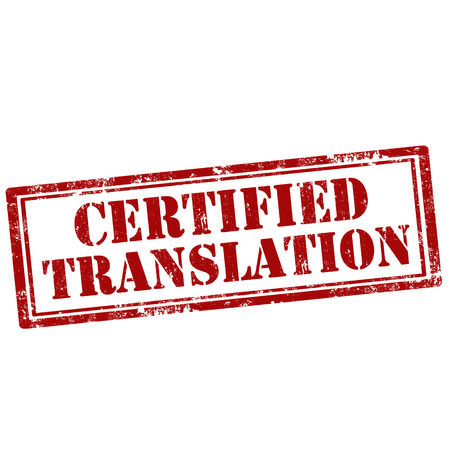
Translation and Certification: What Are Certified Translation Services?
by Chad Richardson
Even in today’s global world, there’s a lot of confusion about the terms “translation” and “certification.” Here’s a helpful list that distinguishes translation from related skills. We also talk about what it means to be a professional translator, and what the term “certification” means in different contexts. This information is essential when you’re looking for certified translation services.
“Translation” refers to written communication. It entails the written transfer of the document’s meaning in the original language (the source) to the target language. When a language is interpreted, on the other hand, the process is spoken.
There’s a difference between translators, interpreters and bilinguals. Translation is a labor-intensive skill performed by trained professionals with years of experience. On a separate but related note, a bilingual individual speaks two languages with a certain level of proficiency. However, depending upon the person’s linguistic exposure, he or she may not write in the second language at all — much less possess the high degree of industry knowledge required to translate or interpret.
In addition, a translator must be skilled at localization. Localization refers to adapting translated material to the cultural and social variations of a region. A language in different regions varies according to vocabulary (lexicon), pronunciation, cultural references, and sayings (idiomatic expressions). In some cases, even verb structure (morphology) varies. Common examples include the vosotros form in Spain and the vos form in Argentina.
Professional translators possess areas of expertise. As if knowing how to translate the cultural and linguistic variations of the target language were not enough, a professional translator has demonstrated expertise within one or more fields. A translator with years of experience translating legal documents, for example, must still go through an additional learning process to translate medical documents properly. It’s common for professional translators to have academic degrees and/or working experience in their area(s) of expertise — whether it be medical, legal, financial or technical training.
Hands-on translation is still necessary. Although numerous technological advances have been made in machine-assisted translation, professional and technical translations require the expertise of flesh-and-blood translators. Because of the linguistic demands of complex translations, machine-assisted translation alone does not produce consistent results.
In fact, most translation companies require their translators to become certified from an accredited organization. In the United States, the American Translation Association (ATA) has a highly competitive certification process. The translator must have years of experience in order to pass comprehensive exams. These assessments have a high fail rate, and only the best translators become certified.
Lastly, governments and other organizations require certified translations. When a translation is certified, it means the translated document meets all the requirements of Citizenship and Immigration Services, for example. Documents of an official or governmental nature (passports, government applications) usually have very specific requirements. Translators sign a document certifying that the translation is correct and that they were qualified to perform the translation. In order to sign that certification with assurance, the translator possesses knowledge of localization, extensive experience, and usually some sort of accreditation or certification from one or more organizations.
If you have any questions about certified translations for your organization, please contact us.
Related Articles
Smart, Fun, and Fascinating Facts About the Use of Sign Language
Also known as ASL (or American Sign Language), this method of communicating with those who are either completely deaf or struggle with their hearing has been around for over two centuries. On the surface, watching those who silently speak, understand, and communicate with others using their hands may appear foreign to most, but it’s actually…
3 Traits for Healthier Meetings and Happier Employees
Have you ever sat in a meeting where you were suddenly jolted out of your daydream when someone asked for your opinion? Maybe you remember that meeting that seemed to drag on with no end in sight. Maybe you don’t remember the meeting at all. Did you ever leave a meeting wondering if you had…
Taking a Break to Manage Unsustainable Accelerated Growth
While growth is the ultimate reason people get into business, sometimes growing or expanding too quickly could lead to some unexpected complications. The challenge for any business owner is not to limit growth but to manage growth and capitalize on it if possible. The effects of unsustainable accelerated growth on your business could include: Having…
here
for you
We’d love to learn more about your translation and localization needs.